Moon Knight is the latest addition to the Marvel Cinematic Universe. Premiering in his own limited series on Disney+ starting this week, Oscar Isaac plays the competing personalities of Steven Grant and Marc Spector who serve as the Fist of Khonshu, an Egyptian deity. When Steven/Marc come into conflict with the enigmatic Arthur Harrow, it turns into a rollicking race across the globe from London to Cairo and beyond. It is an exciting and fun addition to the MCU that is unlike any other series so far. We got the chance to sit down and interview the creative talent behind the scenes of Moon Knight, including director Mohamed Diab.
JoBlo: Hi, nice to meet you.
Mohamed Diab: Hey Alex, how are you?
JoBlo: I’m great. So this was a character I’ve been waiting for a very long time to see come to screen. And there’s been so many iterations of the character over the years, my favorite being the Jeff Lemire version. Did you go back to the comics to draw on any particular areas of this character for making this series?
MD: I actually didn’t know anything about Moon Knight before reading the script that Jeremy Slater created than with the other writers. And it was such a great script. in order to pitch for the project, I was sent all the comic books and I read them all and the Jeff Lemire run was my favorite. And I think Jeremy was completely affected by it and inspired by it. And because that this orientation that you feel in it having that idea of the center of the story was something very important. And the idea of Disassociative Identity Disorder, previously known as multiple personality disorder. So definitely, all of the time, all of us, everyone was working on the show, reading the comics, trying to pull some images from the comic storylines. If you have a gold mine, why not dig from it?
JoBlo: I’ve always been a fan of comic books and superheroes ever since I was a kid, but I didn’t realize until I discovered a connection until Moon Knight. Because I’m Jewish and I live in Chicago and Moon Knight matches that, I felt I identified with him a lot more than other characters. Was it important for you to present this story in an authentic and inclusive way for all of the different cultural elements in the story?
MD: Absolutely. And I want to tell you, it is very important. All my projects are projects that I created. So I always feel like, okay, I’m the first guy, this, this belongs to me, but this is the first time I worked on something that I feel belongs to the fan before it belongs to me. So, we had to portray this in the most authentic way. And I want you to…I wish we can talk again after the end of the show because you’re going to feel that everything in the comic books was dealt with respect and the presentation of it is, is there. And definitely was respected and you were going to find it, then you’re going to be happy with it.
JoBlo: I know that for a lot of people, depending on whether it’s a Marvel project or anything having cast and creators that are authentic to the story itself is very important. And with Oscar Isaac not being Jewish and playing a character that is Jewish, do you think that that detracts in any way from characterizing Moon Knight authentically on screen?
MD: Uh, first of all, I think Oscar, when we talked to him, he is, he told us that he’s part Jewish, and I think he told me “I’m Jewish enough to play the role.” The other thing is, um, the way we’re playing it, he has multiple personalities and being Jewish is one of them. But, again, I wish we can have the same conversation after you’ve finished the show, because I feel you’re gonna feel that it’s portrayed in a very, very respectful way because I really care about portraying every aspect, whether in this story or any other story, with its own culture.
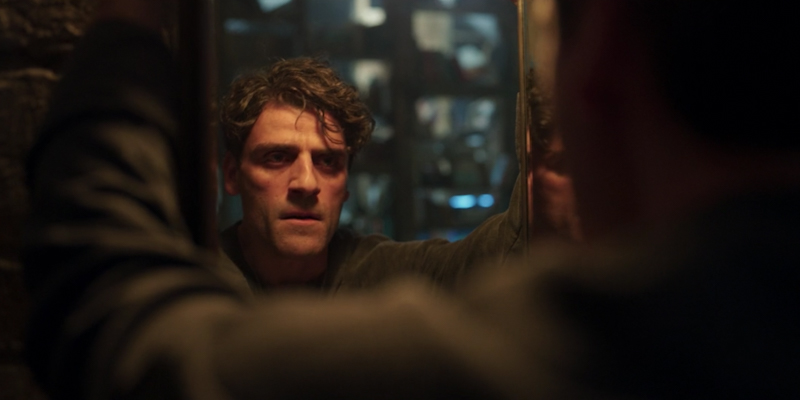
JoBlo: And it definitely does come across in the first four episodes. I remember years ago when Stephen Sommer’s version of The Mummy came out and it’s a rip-roaring adventure, it’s like Indiana Jones. But a lot of those elements of Egypt and that part of the world are played for laughs almost like they are caricatures, but here, everything that we see, none of these characters feel two dimensional. They feel realistic, everybody, regardless of what their background is, seems real. Was that important for you when you were putting these characters on screen?
MD: Absolutely. It’s very important. I came from Egypt. I didn’t live here. I didn’t, I’m not half American or anything. So the way my people are portrayed is exactly like what you said, whether it’s played for slapstick comedy or for the stereotype. And, as you said, most of the characters are two-dimensional. You see women are mostly submissive, men are bad, all the tropes. Although I would call our show just like a first step, we dealt with it with the most respect, most respect. And I wouldn’t just say it’s me because there’s more than one thing in Moon Knight. There is Egyptology and there is the Jewish faith. There are a lot of things. And everything was dealt with respect with experts in every department trying to guide us and tell us how everything should be handled. I’m proud of the Egyptian part in, in, in the show as a first step of doing something.
JoBlo: This is a six episode series and you helmed four of the six. How did you decide or how did it break down as to which ones you are going to be directing versus which ones went to Justin Benson and Aaron Moorhead?
MD: I actually don’t know that. I want to tell you that I’m I pitched me and Sarah, my wife, who is a producer in the show and we got the job. And then I became an executive producer so I was definitely directing the first episode. And then because we deal in a way with the show and you have to see the whole show to understand it more. But these are the episodes that felt I actually connected with the most. And then we hired Aaron and Justin. And I’m so happy with what they did with their episodes because they did a great job. And the most important thing was we deal with the whole show as one unit, as a film. So it needed to have the same voice. So that pitch that we had, which we call it, which I call the visual Bible of the show, I handed it to them. We talked about it. And, uh, a lot of people don’t even feel like there’s a difference between the directing style between our episodes.
JoBlo: And it’s very consistent. What’s nice is that the opening episodes have that horror vibe to them. And then in the middle, it really goes into that Indiana Jones territory where it’s just that massive scale action and adventure. And it’s just so much fun. And. Was it an intentional decision for you to kind of pull back some of those Indiana Jones elements to give it that feel of, you know, old-school serials? Or was that just something kind of evolved over time?
MD: No, that was actually even part of Jeremy’s take on it. I think May Calamawy, our actress who played Layla, put it best when she said, um, the show feels like Indiana Jones meets Fight Club. And maybe that was part of Jeremy’s pitch because that’s exactly how I feel. But definitely for me as a director, for all of us, it felt like Indiana Jones is definitely an inspiration for sure.
JoBlo: Coming from feature films and this being long-form storytelling, it’s a lot more time to tell the story. Was it a different approach for you versus making a feature film?
MD: I want to tell you that inside Marvel, the way we talk about their shows, the way they make them, we all call it film. We almost, whenever we forget to call it TV series or anything, the way the structure is we don’t have a showrunner. It’s exactly the same way that a Marvel film is constructed. Exactly. So for me, I, the only thing I would tell you differently is just like playing with the tools, playing with something like Pre-Vis and designing action and doing stuff, a lot of stuff beforehand and having bigger equipment. But at the core of every story, it is about the drama. It’s about to me, the moment I realize this is a story about someone who’s trying to live with himself, which we all can relate to. That’s when I understood the show and that’s, that’s my process of every film to understand it at its core. It was a character study. And I think hopefully, hopefully that’s what would make it a bit unique.
JoBlo: This will not in any way, lock you into spoiling anything for the final two episodes, but if you personally, outside of this series, could pit Moon Knight against any other superhero who would it be?
MD: Oscar said this idea about the Hulk. And I love it because we have two guys…we have Moon Knight and Mr. Knight, and we have the Hulk and Bruce Banner. And just imagine that dynamic who is going to get along with who, who’s going to drive, who’s crazy…it’s I thought it’s a, it could be a buddy film.
JoBlo: That would be crazy! Congratulations on the show. It’s phenomenal. I can’t wait for everybody to check it out and I can’t wait to see those final two episodes.
MD: I’m really happy, Alex. You liked it. And hopefully, we have a chance to continue this conversation after the last two episodes.
Did you enjoy reading our interview with the Moon Knight director? Moon Knight premieres on March 30th on Disney+.







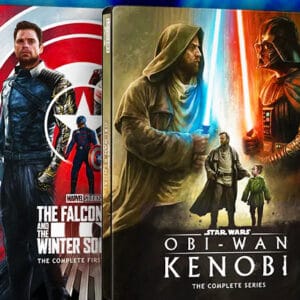
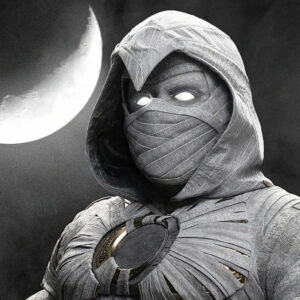
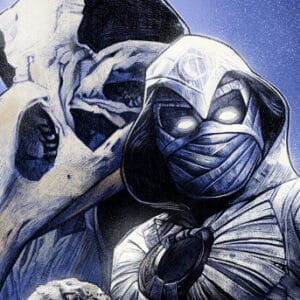




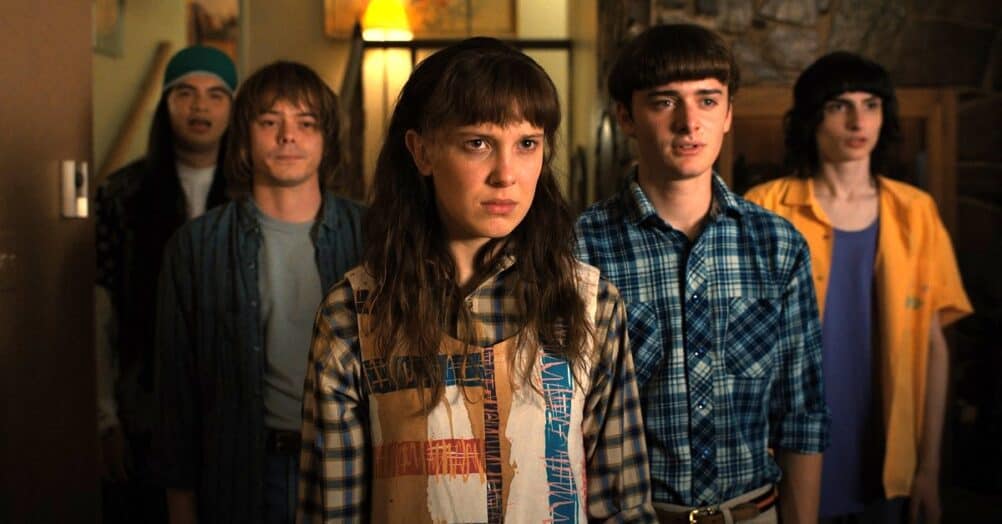
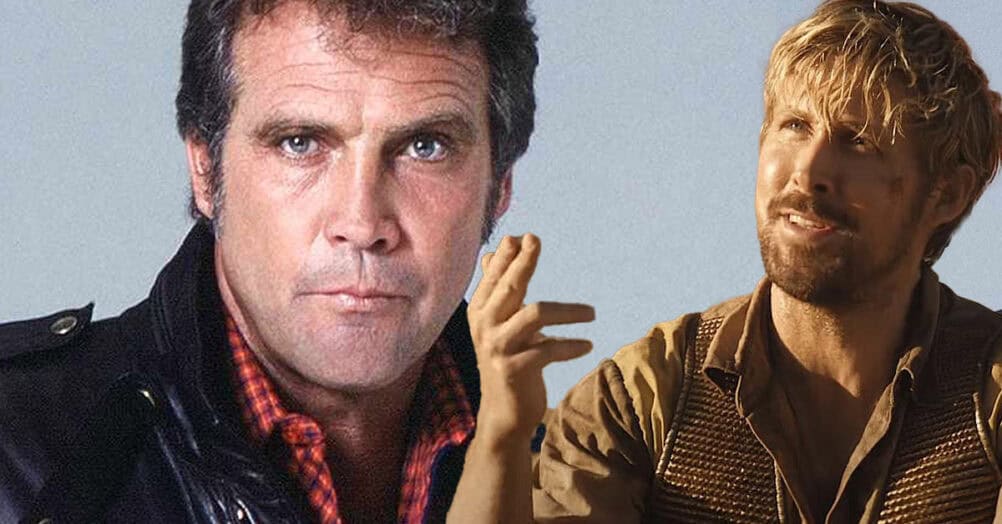




Follow the JOBLO MOVIE NETWORK
Follow us on YOUTUBE
Follow ARROW IN THE HEAD
Follow AITH on YOUTUBE